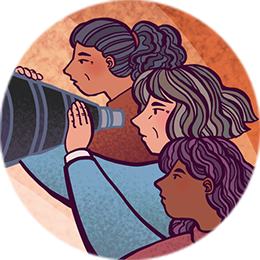Losing More Than Just Your Bladder
I was laying in my hospital bed, curled in a ball moaning from the incredible pain radiating through my left hip and down my leg. Four different IVs were hooked into my arm pumping medicine and fluids into my body. Both my Foley bag and nephrostomy bag were bright red with blood.
I was delirious with pain and the subsequent pain medication. Somewhere in the haze of my peripheral vision, my surgeon was telling me they were going to remove my bladder, and I needed to decide what diversion I wanted.
Choosing an ileal conduit
My husband said they explained all options and that I was a candidate for whichever I wanted, but I honestly don't remember.
I do remember signing off for the ileal conduit and being counseled that they would also be performing a full hysterectomy while endeavoring to preserve my ovaries if no disease was present.
With everything I would experience, my surgeon didn't think early menopause at 28 was necessary.
Waking up after a cystectomy and hysterectomy
I remember waking up from surgery being blissfully pain-free for the first time in weeks. I asked my attending nurse if they had to place a colostomy. I had to sign off that it could be done if the disease had spread.
She said no - I gave a thumbs up and passed out.
Working to recover and manage my ostomy
The next 2 weeks were a blur of trying to recover and learn how to manage my new ostomy. It wasn't until the first post-surgical follow-up that I learned one tiny detail that would break my heart.
My surgeon explained everything he removed and how difficult the surgery was. He offhandedly mentioned that I was going to be much smaller now.
They shortened my vaginal canal
Wait, what? What do you mean by "smaller"?
Obviously, this wasn't the main concern when being prepped for surgery, but no one counseled me that with a hysterectomy the vaginal canal is shortened.
With a radical cystectomy, it is shortened even more. What my surgeon meant by smaller was that my ability to have traditional intercourse with my husband was going to be difficult, if not impossible.
Intimacy after bladder cancer
Here I was, having just celebrated my one year wedding anniversary, only 28 years old, and with a very healthy sex life prior, being told, "Yeah, no - that's not an option anymore."
Here's where I admit I actually went home and cried. I was nowhere near recovered or ready to begin trying to resume any intimacy with my husband, but I was already mourning what I had lost.
This diagnosis was devastating. Having a stoma was quite the blow to my feminine vanity. Being told that I had lost even more wrecked me.
I wish I had been told that this was a reality prior to my surgery. Not that it would have changed my decision, but I would have had time to mentally prepare, just as I did for my stoma.
Sex after cystectomy and hysterectomy
Around 10 months post-op, I was finally being taught about vaginal dilators, special lubricants, and even a procedure we can try in the future to help regain my ability to have some semblance of sexual normalcy.
It frustrates me to know there were many things I could have done during my recovery to help with this and make it easier to get some "space" back.
Considerations for women's sexual health
Reading the experiences of other women, I can see this is not a situation unique to me.
I hope we can advocate for some type of preservation efforts for women in the same way surgeons preserve nerve endings for men so that they can have erections in the future.
Cancer takes enough from us. Maybe in the future, we can prevent losing this aspect of human intimacy as well.

Join the conversation